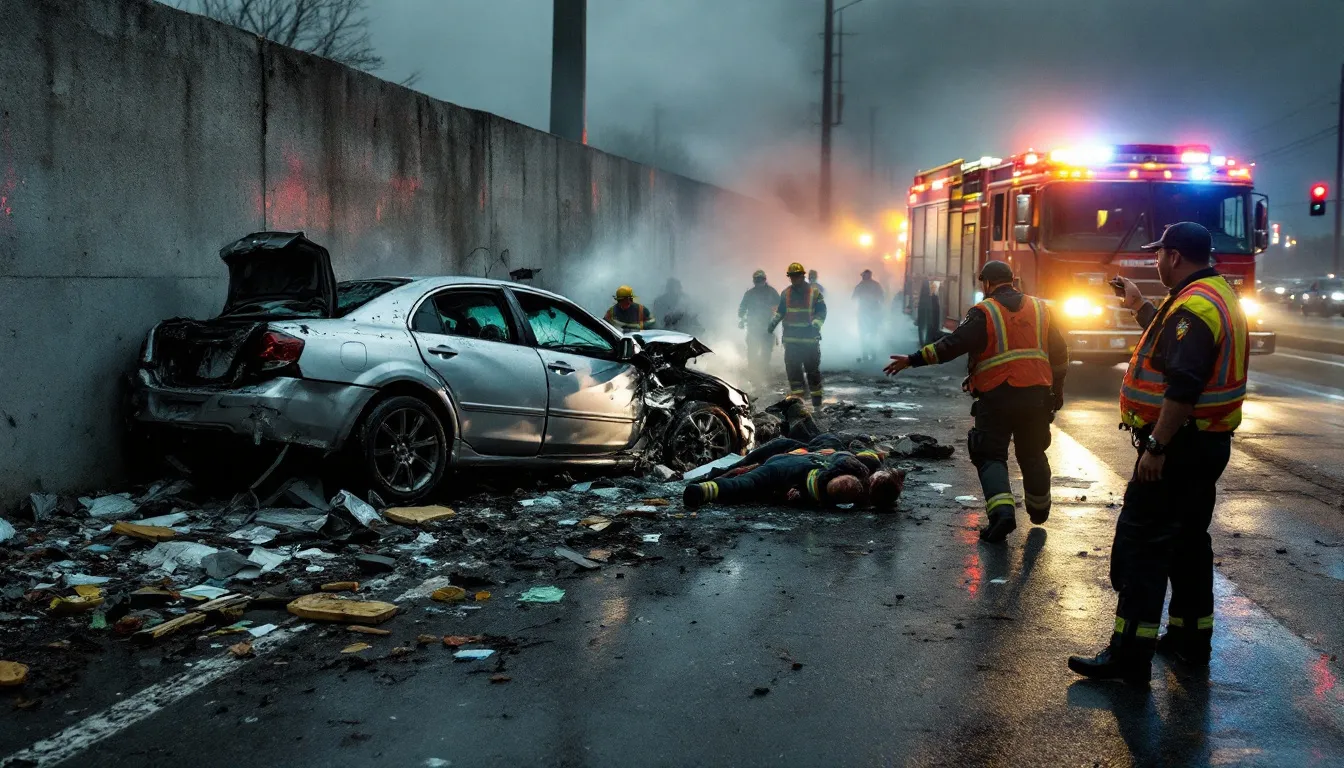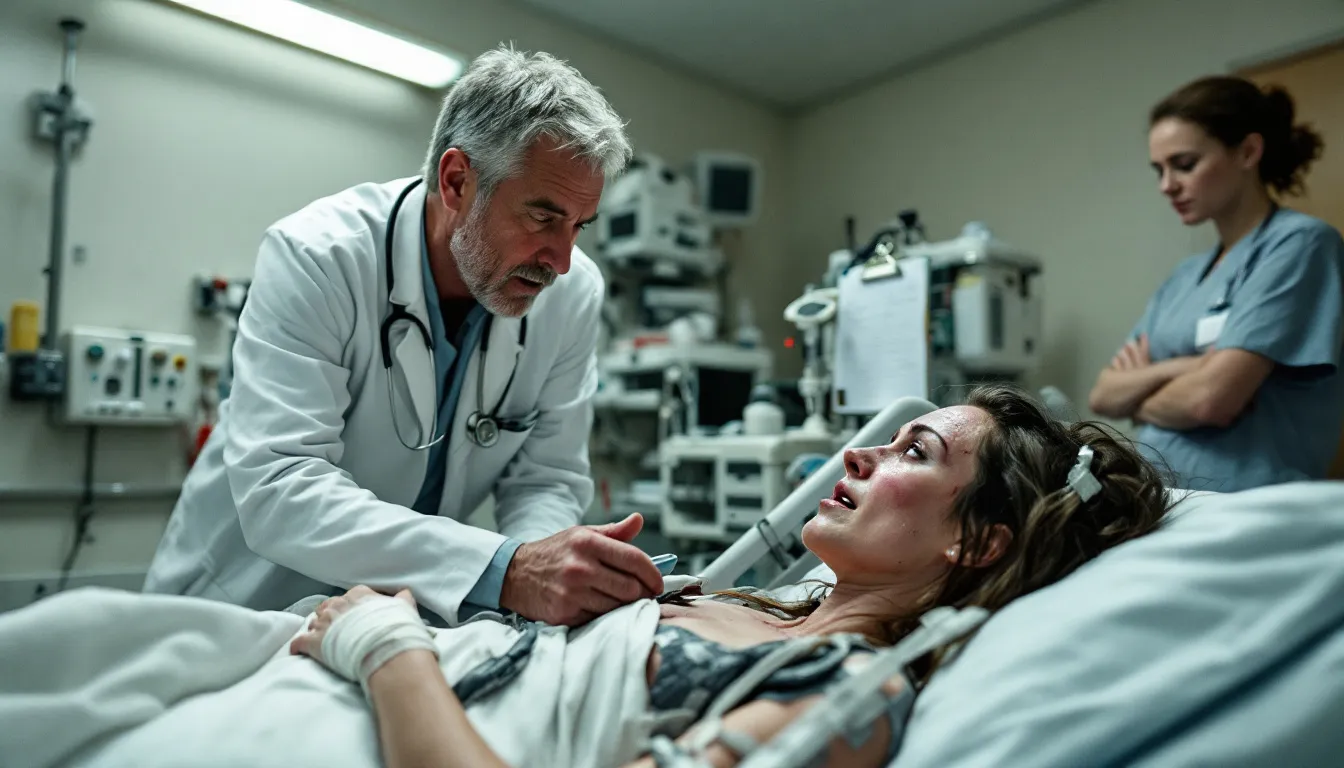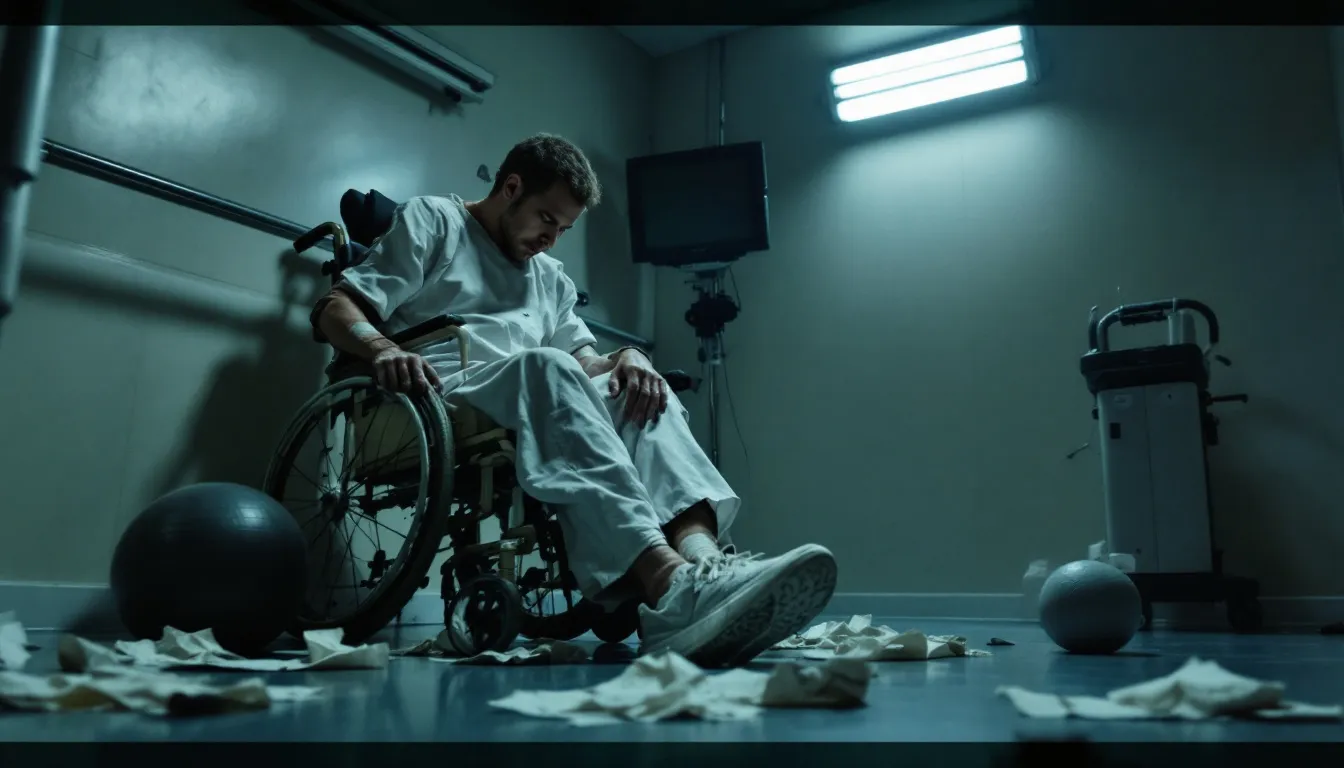Support Strategies for Car Accident Victims: A Comprehensive Guide
For car accident victims, the moments after a crash are critical. Ensure safety, call emergency services, and gather necessary information. This guide covers these immediate steps, medical care, legal advice, and long-term support to help you through every stage of recovery.
Key Takeaways
- Ensuring safety and promptly documenting the accident scene are critical first steps for car accident victims to support claims.
- Seeking immediate medical attention is vital, as hidden injuries may not show symptoms right away, and keeping detailed medical records is essential for subsequent claims.
- Legal support from car accident attorneys can help victims navigate complex legal and insurance issues, ensuring they receive deserved compensation and alleviating stress during recovery.
Immediate Steps to Take After a Car Accident

Road traffic accidents are sudden and often disorienting, leaving victims unsure of what to do next. Prioritizing your safety and that of others is the first step. Assess the situation calmly and take actions that will not only ensure safety but also lay a solid foundation for any subsequent insurance claims related to road traffic crashes.
Immediate and proper actions can significantly affect the outcome of your case and your overall well-being.
Ensure Safety and Call Emergency Services
Following a car accident, it is crucial to relocate to an area that is secure and distanced from ongoing traffic to avoid incidents. Evaluate the well-being of all parties involved and summon emergency services if there are any signs of distress.
Ascertain the severity of any injuries sustained in the accident promptly, reaching out without delay to emergency responders who can deliver necessary aid.
Documenting the Scene
Documenting the accident scene is beneficial. By taking photos of any damage, tire skid marks, and surrounding area, you create important evidence for insurance claims and court cases. This thorough record-keeping can offer significant support during legal disputes and bolster your case.
Collect Information
It’s crucial to swap contact and insurance details at the scene of an accident. You should steer clear of conversations that could suggest responsibility for the incident. Keeping certain information private until you secure legal counsel can safeguard your interests and avert potential misinterpretations.
Collecting pertinent data while still on site is an essential phase in initiating the insurance claims process.
Seeking Medical Attention Post-Accident

Make sure to obtain medical care as soon as possible after ensuring safety and collecting relevant information. A swift medical assessment is vital even in the absence of apparent serious injuries.
It’s important to be aware that not all injuries, such as internal bleeding or concussions, will show symptoms right away. These can pose a threat to your life if they go unaddressed. Getting medically evaluated could save your life and help avoid health issues.
Immediate Medical Evaluation
Following a car accident, the surge of adrenaline can conceal serious internal injuries such as organ damage or brain concussions. Symptoms for these types of harm may not be apparent right away, underscoring the importance of prompt evaluation by specialists in automotive medicine.
Injuries that are frequently sustained in car accidents, like whiplash and internal bleeding, might not initially cause pain. Consequently, it’s critical to assess your injuries without delay to ensure you receive the necessary treatment promptly.
Keeping Medical Records
It is essential to keep detailed medical records, including all medical reports, treatment protocols, and billing statements. Such documentation not only validates your injury claims but also guarantees that you obtain the proper subsequent care.
Comprehensive health records are crucial for addressing future healthcare requirements and supporting claims related to personal injuries.
Communicating with Insurance Companies
Ensuring fair processing of your claims hinges on clear interaction with insurance firms. Accumulate all pertinent data from the other driver and witnesses to back up your assertions.
Maintaining thorough records and staying prepared bolsters the efficiency of your dealings with insurance companies, guaranteeing that you obtain the rightful compensation. That being said, it’s important that you do not have detailed discussions with insurers until you’ve first spoken to a qualified attorney for guidance!
Providing Necessary Information
When corresponding with insurance firms, it’s imperative to work with an attorney who can help you to avoid sensitive disclosures that would undermine and hurt your claims. They will work with you to submit comprehensive documentation and proof to support your case. Grasping the nuances of various insurance coverages, including liability and uninsured motorist protection, can lead to obtaining maximum compensation.
Drivers usually lodge claims with their personal insurance in states that operate under no-fault insurance systems, irrespective of who is at fault for the accident.
Handling Insurance Tactics
Insurance firms frequently use strategies aimed at reducing the amount they need to pay, including postponing their replies or proposing initial settlements that are less than adequate. They might also challenge the seriousness of injuries by insinuating that these conditions existed beforehand, which could weaken the legitimacy of your claim.
When interacting with insurance adjusters, your attorney will speak on your behalf, strictly providing accurate information and steering clear of any comments that might be interpreted as an acknowledgment of responsibility for what occurred.
The Role of a Car Accident Attorney

Attorneys specializing in car accidents offer crucial legal assistance and direction, aiding accident victims through the intricate legal issues that follow an accident. Their role is to ensure that those affected are adequately compensated for their ordeal.
Consulting with lawyers experienced in car accidents safeguards your rights while significantly reducing the stress associated with dealing with legal procedures and bargaining.
Legal Guidance and Representation
Car accident attorneys offer legal guidance and representation, helping victims navigate the intricacies of post-accident legal matters. Experienced lawyers handle all legal and insurance issues, allowing victims to focus on their recovery without legal stress.
Car accident attorneys often offer free consultations to help victims understand their rights and potential outcomes.
Managing Legal and Insurance Issues
Skilled attorneys take on the task of handling all negotiations with legal and insurance entities, thereby alleviating the associated stress for victims. This enables those affected to focus solely on their recovery as lawyers navigate intricate discussions to secure equitable treatment for them.
Free Consultation Services
Many car accident attorneys offer initial consultations for free, allowing victims to assess their cases without financial risk. These consultations help victims make informed decisions about pursuing their legal rights and options.
Legal marketing networks like 1-800-THE-LAW2 can connect car accident victims with experienced attorneys who offer free consultations.
Coping with Physical and Mental Health After a Car Accident

Car accidents often result in considerable emotional and financial strain, necessitating attention to both mental and physical health issues. While physical therapy targets concealed injuries aiding in recovery, support for mental health is crucial for dealing with conditions such as PTSD, anxiety, and depression.
Integrating strategies for mental and physical well-being markedly improves the outcomes of recovery.
Dealing with Physical Injuries
Traumatic brain injuries and spinal cord injuries are common consequences of car accidents, along with whiplash. Soft tissue damage, broken bones, and internal bleeding can also occur as a result of car crashes.
It is crucial to seek immediate treatment and engage in rehabilitation to aid in the recovery process. Postponing physical therapy may lead to persistent complications such as ongoing pain and diminished movement capabilities.
Managing Mental Health
Mental health conditions associated with car accidents often include post-traumatic stress disorder, anxiety, and depression. About one in three individuals involved in crashes experiences moderate to severe mental health symptoms. This highlights the significant impact of car accidents on mental health.
Coping strategies like mindfulness, meditation, and therapy help manage these symptoms. Medication is often used with psychotherapy for effective treatment. Consult a healthcare professional if lingering anxiety symptoms persist.
Long-Term Recovery and Rehabilitation
Recovering from a car accident requires not only physical therapy to help the victims restore their strength and movement but also strong social support systems for emotional sustenance and assistance in returning to everyday life.
It is crucial to focus on both the physical and emotional dimensions of recovery to ensure complete well-being following an accident.
Physical Therapy and Rehabilitation Programs
Physical therapy is critical for long-term recovery, especially for victims with significant physical weakness who are bedridden during the early stages. Participants often report a gradual improvement in physical activity as recovery progresses. Doctors recommend rest as an essential part of the recovery process, supporting overall healing.
Returning to work and engaging in regular activities empowers individuals, helping them strengthen muscles and improve mental well-being. Interacting with a treatment team is essential for maintaining balance and achieving recovery goals.
Support Systems and Social Networks
Social support is crucial for individuals who are recovering from a road traffic accident, as it offers both emotional support and the necessary tools to help them reintegrate into their regular routines. It holds a prominent place in aiding injury recovery among victims of such accidents. The contribution of peer support cannot be overstated. It greatly assists with emotional recuperation and provides relatable insight.
Engaging with peers who have endured comparable traffic incidents mitigates feelings of solitude and anxiety by cultivating an environment rich in communal bonds and collective assistance, thereby promoting a shared sense of belonging.
Legal and Financial Considerations
Dealing with the legal and financial challenges that come after being involved in a car accident can be overwhelming. Attorneys who specialize in car accidents assist the victims by leading them through the legal process, explaining their entitlements, and interpreting the specific traffic laws of their jurisdiction.
Seeking medical attention promptly following an accident is key to connecting any injuries directly to the incident, which supports claims for personal injury. Keeping detailed records of all medical treatments not only strengthens these claims but also secures fair compensation to cover ongoing healthcare requirements.
Unexpected expenses such as those related to healthcare or funerals can impose significant economic strain on victims. Hence, accessing expert legal advice becomes crucial.
Understanding Insurance Claims
It’s essential to file a claim following a car accident. Contact your insurance company about the event as soon as possible, regardless of who is at fault. In states with no-fault laws, your own insurance policy will take care of your damages and injuries even if you did not cause the collision.
To make a claim, collect information like when and where the accident occurred, along with the insurance details of the other individuals involved. Claims adjusters conduct an investigation into accidents by examining police reports and speaking to those involved as well as any witnesses. Filing claims without delay helps avoid difficulties and facilitates expedient reimbursement for losses incurred due to the incident.
Compensation for Damages
Victims of a car accident are entitled to claim multiple forms of damages for their losses. This includes considerable expenses such as hospital bills, costs of medications, and fees associated with rehabilitation. If the victims are unable to work following the accident, they can also seek compensation for lost wages, which impacts their financial security.
Claims for pain and suffering consider both emotional and physical anguish endured by the victims, offering a comprehensive perspective on their hardship. It’s crucial to grasp these damage categories in order to obtain fitting restitution after an accident.
Resources for Car Accident Victims

Support for car accident victims is essential as they navigate challenges following a traumatic event. Various organizations offer specialized support services to address the diverse needs of victims. RoadPeace, for example, provides helplines and local assistance.
Victims often express a need for treatment support, social support, and peer support as they recover. These types of support help victims return to normal life and cope with the aftermath of the accident.
Finding Professional Help
It is crucial for individuals who have endured a car accident to seek expert assistance as part of their healing process. To assist victims in finding licensed therapists specialized in addressing the aftermath of such incidents, the American Psychological Association offers an effective search tool.
For those specifically dealing with survivors’ guilt from crash events, resources are available through groups like Mothers Against Drunk Driving (MADD). The Best Online Therapy guide serves as a valuable resource when searching for therapeutic services designed to cater to the unique needs of car accident victims. This professional support plays a vital role not only in physical recuperation but also in overcoming emotional trauma for thorough recovery.
Online Support Communities
Virtual support networks are crucial in aiding individuals who have endured a car accident, offering them an opportunity to recount their ordeal, obtain support, and gain insights from those with comparable experiences.
Participation in these online communities diminishes the sense of solitude and provides important guidance regarding recovery. They provide a nurturing environment and empathy that significantly contribute to emotional recuperation.
Summary
Managing the consequences of a car accident requires careful attention, and taking appropriate actions can greatly influence both your healing process and legal results. Ensuring safety first, obtaining prompt medical care, adeptly dealing with insurance providers, and consulting a car accident lawyer are vital measures to take. It’s important to focus on recovering from both mental and physical health issues stemming from the accident. Utilizing support networks can improve recovery efforts significantly. With knowledge of your rights and by utilizing existing resources at your disposal, you’ll be better equipped to handle this difficult period while striving for comprehensive recuperation.
Frequently Asked Questions
Immediately after a car accident, ensure safety by moving to a safe location, assess any injuries, and call emergency services if needed.
It is also important to document the scene and exchange contact and insurance information without discussing fault.
After being involved in a car accident, it is crucial to obtain medical care even if no immediate symptoms are apparent. This step ensures the discovery of any concealed injuries like internal bleeding or concussions which could have delayed onset.
Keeping detailed medical records after an accident serves as vital evidence for supporting any claims connected with the event.
It’s important to articulate your points with clarity and back up your claims with comprehensive documentation and proof, ensuring that you steer clear of any comments which might be construed as an acknowledgment of liability.
Stay alert to strategies employed by insurance companies that could weaken your stance.
An attorney specializing in car accidents is essential for delivering legal advice, standing up for the rights of accident victims during discussions with insurance providers, and typically providing complimentary assessments of their situations.
Such a professional guarantees that those affected by car accidents are awarded appropriate compensation, thereby alleviating them from financial strains.
To effectively cope with the mental health impact after a car accident, consider implementing strategies such as mindfulness, meditation, therapy, and possibly medication to manage symptoms like PTSD, anxiety, and depression.
Connecting with online support communities can also offer valuable emotional support during recovery.




